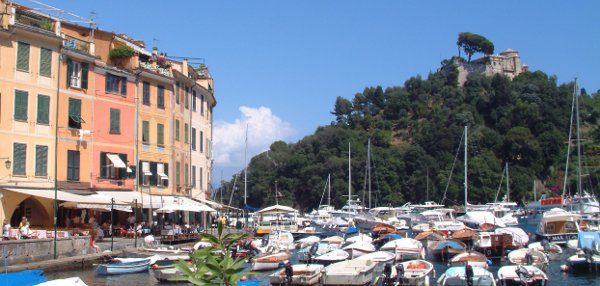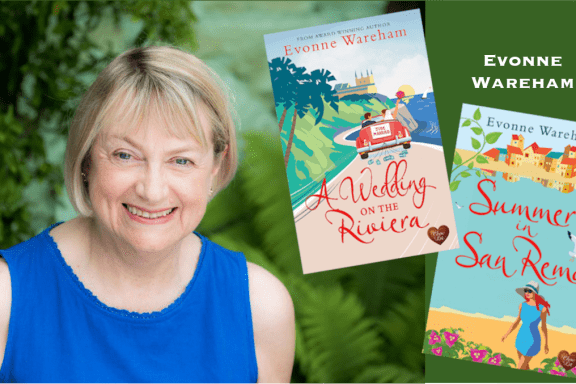Il signóre Maglian was in the harbourside cafe drinking his espresso, waiting for his friends to return. The harbourmaster sat facing the sea. He could smell a storm coming in: the breeze was picking up; trees on the seafront were whispering it would be a bad summer squall; and fishing nets on the quayside were shifting slightly, nodding in agreement. Allóra. He would not see his English friends today, after all.
He rolled a cigarette, tapped it on the back of his hand, before striking a match and lighting up. I signori would be sure to stay on with their friend and wait for the storm to pass. It was a shame. He had wanted to see the Don Juan round the headland in full sail. She had left Lerici on the first of the month and it had been perfect sailing weather. La bella barca had flown, once she’d cleared the harbour. Maglian had watched her leave, remembering the trips he had taken in her as far as Massa, often in rough seas. I signori had laughed at Maglian’s nerves, and scoffed at him saying they would not be able to swim to shore in such weather. Precisely why he had not bothered to learn to swim, il signóre had said, there was no point when it was you against the might of the sea.
The Don Juan was an unorthodox craft. Il signóre had called her “a perfect plaything for the summer.” And she was certainly that. Maglian stood up and walked along the quay, drawing on his cigarette. Captain Roberts had designed her, she was supposed to be a down-sized American schooner, and then together with il signóre Williams, he had improved her again. Much more sail, a false stern, an extended bowsprit and prow, and more pig iron ballast. Hardly any deck on her at all. Some of the fishermen thought she was “crank” but a beauty nonetheless. Maglian simply remembered thinking at the time that there was more canvas on her than he’d seen hanging from the line on wash-day in Lerici. And the boat was fast. She beat the felluccas as if they were at anchor. Il signóre said she passed them “as a comet might pass the dullest planets of the heavens.”
Maglian walked the rocks in the harbour, still half-hoping to see the sails of the Don Juan. The fishing boats were coming back in, only a few of the ones who went further afield were still out there now. He prayed they would make it home before the storm was full-blown. Even here in the harbour, the boats were rocking as the sea began to boil up outside the bay. The men were securing them as best they could, fastening them down for the squalls to come. One more cigarette, Maglian thought, and I will head home. There is nothing more for me to do here. They will not come home today.
…
They found the bodies washed up on the shore near Spezia ten days later, Maglian tells the fishermen in the cafe. Someone on the shore thought he saw the Don Juan hurtling home at full-sail, when the storm crossed the bay near Spezia. They should have cut the top-sails but they were trying to beat it home. A violent squall whipped up from the west and they couldn’t outrun it. The wind buffeted the eye-witness on the cliffs and he had to shield his eyes from its force. When he looked back, he could no longer see the Don Juan.
One of the fishermen asks if it was definitely them, if there was any sign of la bella barca. Maglian shakes his head, no, no boat, but it was them. They were identified from the clothes they were wearing and the authorities knew it was il signóre Shelley from the book of poetry in his pocket, a book of his friend’s poetry, il signóre Keats, who died last year in Roma.
The bodies were buried in the sand to comply with quarantine laws, and now il signóre Shelley is to be burned on the beach. Il signóre Trelawney is making up an iron casket for the body, and the locals are helping build a funeral pyre. It will be on the fifteenth, I think, says Maglian, and I will go to say goodbye to my friend.
Was it really the storm that killed them? one of the men, sitting in a corner of the cafe, asks. He has heard, as have the others, the rumours about dark, suicidal thoughts that swirled around inside il signóre Shelley’s head.
Maybe the Don Juan can tell us that, when she is found. If the sea will give her up.



You got me at “Keats.” My favorite sexy dead poet. I’ve written poems about going back in time to be with him. I love this story, Kathryn. Great descriptions and images throughout. I love your take on this piece of literary history. Great debut! Welcome to #fridayflash.
Thanks for your kind words and for being so encouraging, both here and on Twitter, Maria.
I’ve had a soft spot for Keats ever since I lived on the Isle of Wight. Keats briefly stayed there in 1817 and the island connection made me look out his poetry.
Really liked that story. I must try Friday Flash sometime. But not today as it’s already late and I am nursing a cold (glass of malt whisky and aspirin to hand) and I’m more in the mood for reading than writing. But thanks, Kath, for giving my weekend a flying start.
Thank you, Fennie. I hope you have a speedy recovery and definitely try #fridayflash sometime – my first experience of it has been so positive, I’m left wondering why it took me so long to get around to doing it in the first place.
Oh fabulous! Really fabulous! Oh, I love it. Super and so clever. You set the mood and the scene so well. Tremendous descriptions. I’m going to read it again 🙂
Thanks Rach, you don’t know how happy that makes me. I was really worried that you might find it an anticlimax!
This is nice I got so caught up in it
Thanks lovely lady!
Please don’t let this be your one and only flash, it was so beautiful, so masterfully controlled a pace.
Marc
Coming from such a wonderful writer as you, Marc, that’s an incredible compliment. Thank you! Everyone’s been so supportive that I don’t think it will be my last one. The #fridayflash community is brilliant.
Excellent, excellent piece. Of course I had to go out and look up Shelley. Makes it all the more poignant when it turns out to be based on fact. So many little tidbits (like Keats in his pocket) just rang so true. So glad you shared this with us.
Welcome to #FridayFlash.
~jon
Thank you ever so much for taking the time to read and comment – and look up Shelley in order to do so! That was generous of you. I appreciate the warm welcome to #fridayflash, Jon.
Thoroughly evocative. I could almost taste the salt and the cigarette.
Thanks Tony! – and welcome to the Nut Press. Just the kind of reaction I was hoping for.
Lovely description of a world I know nothing of. A nice surprise to learn the who and why of the boat.
Thanks for reading and taking the time to comment, Judy. Much appreciated.
Wow, really enjoyed this. What an awful lot of research you must have done about boat building, Shelley and the period. Totally believable.
Shelley is one of my favourite poets too. Ozymandias and Ode To The West Wind are top of my list.
A great idea beautifully executed. 🙂
Thanks for leaving such a lovely comment, Mandy.
I’ve been reading around Shelley and Keats for a while now, partly to feed my obsession with all things Italy, and it’s been so enjoyable that it’s never felt like research.
Beautiful!!! I am extremely envious of your talent.
I’m not sure how to respond to that except to say Thank You, Steve.
Beautiful, Kath! Really enjoyed this – I can see the boat just hurtling through the sea on a suicide mission… if that’s what it was.
It’s an interesting thought, isn’t it? And just adds to the mythology that seems to surround the Romantic poets.
Love the voice in your flash. It makes me feel like I’m on a spanish sea-side sleepy village and the boating terms clinches the voice for me. Cleverly written.
Thanks Aidan. I’m happy that you enjoyed the voice – I really enjoyed writing it.
Brilliant, it was an excellent story with exceptional atmosphere and descriptions. You gave life to that boat. I loved it Kath.
Wow, thanks Sarah. What a lovely compliment!
Hi Kath, this was wonderful, so accomplished, a really well rounded and engaging story and that was before you even mentioned Shelley and Keats. All that sailing know how was fascinating too. So glad you started the flash and can’t wait to read more.
High praise indeed, coming from you! Thanks Alison.
I am very much a reader rather than a writer but I felt transported there. So believable. It was lovely to escape in my coffee break. Very talented.
It’s so lovely to hear that you were taken there by my writing. Thank you!
Kath , I LOVE it! It’s fab! First of many I hope!
Thanks lovely Ina! I can’t promise I’ll do it every week but I’m definitely going to write more #fridayflash if I can.
I love Keats. My favorite Romantic poet. Beautifully written, Kath. Thanks for posting this!
Thanks for reading it and posting feedback, Ann! Much appreciated.